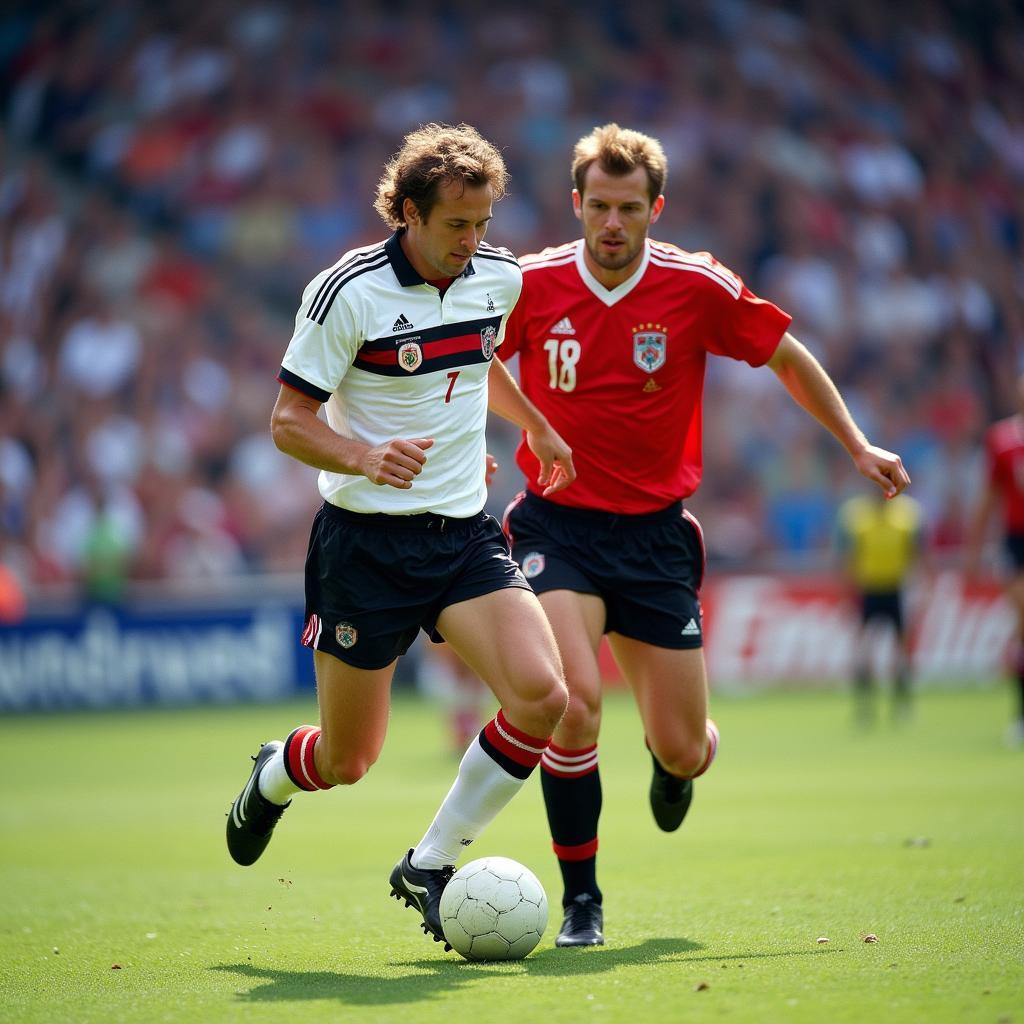Famous German Football Players: A Legacy of Legends
October 22, 2024Germany, a nation with a rich footballing heritage, has consistently produced some of the world’s most celebrated football players. From the early pioneers to the modern-day superstars, German footballers have left an indelible mark on the sport, captivating audiences with their skill, passion, and tactical prowess. This article delves into the lives and careers of some of the most famous German football players, exploring their contributions to the beautiful game.
The Golden Era: Beckenbauer, Müller, and the Birth of a Dynasty
The 1970s marked a golden era for German football, spearheaded by the legendary Franz Beckenbauer and Gerd Müller. Nicknamed “Der Kaiser” (The Emperor), Beckenbauer revolutionized the role of a defender with his elegant style, exceptional ball control, and ability to dictate play from the back. His leadership and tactical acumen played a pivotal role in Germany’s triumph at the 1974 FIFA World Cup, where he captained the team to victory on home soil.
Gerd Müller, on the other hand, was a goal-scoring machine. Known as “Der Bomber” for his clinical finishing, Müller possessed an uncanny ability to find the back of the net. He scored an astonishing 68 goals in just 62 appearances for West Germany, a testament to his predatory instincts. Müller’s goals were instrumental in Germany’s success during this era, including their victory at the 1972 UEFA European Championship.
 German Football Legends: Beckenbauer and Müller
German Football Legends: Beckenbauer and Müller
The Rise of a New Generation: Matthäus, Klinsmann, and German Efficiency
The late 1980s and 1990s saw the emergence of a new generation of German footballers, characterized by their work ethic, discipline, and tactical flexibility. Lothar Matthäus, a tenacious midfielder, epitomized the German spirit. Known for his leadership, tackling ability, and tireless running, Matthäus captained Germany to victory at the 1990 FIFA World Cup. His consistent performances over two decades earned him the FIFA World Player of the Year award in 1990.
Jürgen Klinsmann, a prolific striker, brought a different dimension to the German attack. Renowned for his clinical finishing, aerial ability, and intelligent movement, Klinsmann formed a lethal partnership with Rudi Völler, leading Germany to victory at the 1996 UEFA European Championship. His charisma and leadership qualities later translated into a successful managerial career, guiding Germany to third place at the 2006 FIFA World Cup.
 German Football Efficiency: Matthäus and Klinsmann
German Football Efficiency: Matthäus and Klinsmann
The Modern Era: From Ballack to Neuer, a Legacy Continues
The new millennium witnessed the rise of Michael Ballack, a complete midfielder who possessed power, technique, and an eye for goal. Ballack, often considered one of Germany’s greatest midfielders, led the team to the final of the 2002 FIFA World Cup and the semi-finals of the 2006 and 2008 UEFA European Championships. His ability to control the tempo of the game, create scoring opportunities, and score crucial goals made him a talismanic figure for Germany.
Manuel Neuer, the current captain of the German national team, redefined the role of a goalkeeper. With his exceptional reflexes, distribution skills, and ability to act as a sweeper-keeper, Neuer’s influence extends far beyond his penalty area. He played a pivotal role in Germany’s triumph at the 2014 FIFA World Cup, earning the Golden Glove award for his outstanding performances.
Conclusion: A Legacy of Excellence
From Beckenbauer to Neuer, German footballers have consistently graced the world stage with their talent and determination. Their contributions to the sport have earned them admiration and respect from fans and pundits alike. As Germany continues to produce exceptional footballers, their legacy of excellence is sure to inspire generations to come.